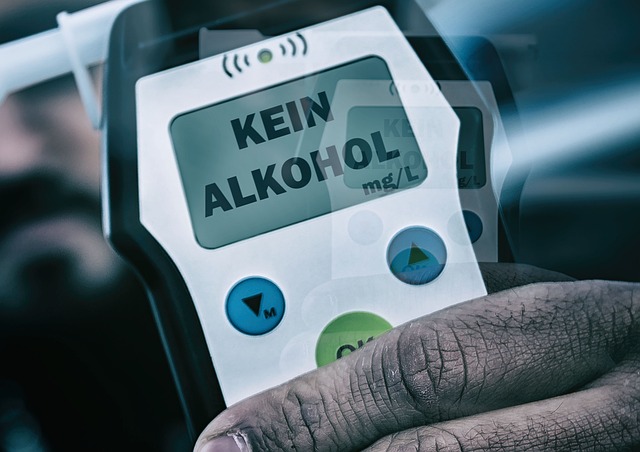Understanding global immigration and DUI perspectives is vital for individuals facing cross-border legal complexities. DUI offenses can severely impact residency status, citizenship, property ownership, licenses, and employment worldwide. Property damage from DUI incidents encompasses private and public property, vehicles, and infrastructure, with significant economic impacts, as evidenced by a $37 billion annual cost in the U.S. Navigating these complexities requires strategic planning, international legal expertise, and risk mitigation strategies to protect financial stability and life opportunities.
In the global landscape of immigration and legal responsibilities, understanding Property Damage DUI Liability is paramount. This comprehensive guide explores the intricate relationships between driving under the influence (DUI) and its far-reaching consequences, particularly regarding property damage. From a global perspective, we analyze diverse legal frameworks and their impact on individuals and communities. By delving into case studies and risk management strategies, this article offers valuable insights for navigating the complex web of DUI liability and its immigration implications.
- Understanding Property Damage DUI Liability: A Global Perspective
- Immigration Implications: DUI and Cross-Border Consequences
- The Legal Landscape: Defining DUI and Its Impact on Property
- Case Studies: Real-World Examples of Property Damage Claims
- Strategies for Minimizing Risk: Prevention and Post-Accident Management
Understanding Property Damage DUI Liability: A Global Perspective

In the global landscape of immigration and DUI (Driving Under the Influence) perspectives, understanding property damage liability is paramount. Laws and regulations vary significantly across countries, reflecting diverse cultural norms and legal interpretations. For immigrants facing DUI charges, especially those intending to establish residency or seeking citizenship, the consequences can be far-reaching, impacting their ability to own property, obtain licenses, and maintain employment.
Property damage resulting from a DUI incident is a critical aspect of criminal liability that often extends beyond personal injuries. This includes damage to private and public property, vehicles, and infrastructure. Immigrants must navigate these legal complexities, which can differ drastically from their home countries, particularly in terms of penalties, restitution requirements, and insurance coverage expectations. Global immigration and DUI perspectives highlight the need for comprehensive understanding and strategic planning to mitigate potential long-term effects on individuals’ lives and financial stability.
Immigration Implications: DUI and Cross-Border Consequences

In the context of property damage and DUI liability, understanding global immigration and DUI perspectives is crucial for individuals navigating legal complexities across borders. Immigration authorities worldwide take a serious view of Driving Under the Influence (DUI) offenses, as they can have significant implications on an individual’s residency status and future opportunities. A single DUI conviction could lead to deportation or refusal of entry into other countries, especially those with stringent legal agreements on crime and immigration.
Cross-border consequences extend beyond the initial incident. Individuals facing property damage charges due to DUI may find themselves in a complex web of international laws and regulations. This is particularly relevant for folks who frequently travel or reside in multiple nations. The global immigration and DUI perspectives on such cases vary widely, but they often include strict penalties and enhanced surveillance, underscoring the need for comprehensive legal counsel with international expertise.
The Legal Landscape: Defining DUI and Its Impact on Property

In the realm of Global Immigration and DUI perspectives, understanding the legal landscape is paramount. DUI, or Driving Under the Influence, is a significant legal issue that carries substantial consequences, including potential property damage liability. When an individual operates a vehicle while impaired by alcohol or drugs, they not only risk their own safety but also that of others on the road. This includes the possibility of causing accidents, which can result in extensive property damage.
The impact of DUI extends beyond criminal penalties and personal injuries. Property damage is a considerable aspect, often involving the destruction of vehicles, infrastructure, or even residential properties. Legal systems worldwide have responded by implementing stringent laws to deter such behavior, holding drivers accountable for their actions through strict liability rules. This ensures that victims of DUI-related incidents can seek compensation for their losses.
Case Studies: Real-World Examples of Property Damage Claims

In the realm of Global Immigration and DUI Perspectives, understanding real-world examples of property damage claims is paramount. Case studies reveal the significant impact of drunk driving on private and public properties. For instance, a 2018 study in the United States reported that over $37 billion was spent annually on alcohol-related traffic crashes, including property damage costs. This staggering figure underscores the economic burden and societal implications of DUI incidents.
One notable case involved a DUI driver who lost control of their vehicle, crashing into several parked cars and a nearby building. The incident caused substantial property damage, leading to a claim that highlighted the liability associated with such incidents. Global perspectives further emphasize this issue, as similar cases in international cities have resulted in multi-million dollar settlements, emphasizing the need for stringent DUI laws and public awareness campaigns worldwide.
Strategies for Minimizing Risk: Prevention and Post-Accident Management

In the realm of Global Immigration and DUI Perspectives, minimizing risk is paramount for individuals facing DUI charges, especially with potential property damage implications. Prevention strategies are key; this includes adhering to legal blood alcohol limits, never driving under the influence, and understanding the severe consequences of a DUI offense, which can impact future immigration status. Regularly attending support groups or seeking counseling can help manage underlying issues that may contribute to impulsive behavior.
Post-accident management is crucial too. Following an incident causing property damage, individuals should immediately contact authorities, exchange insurance information with affected parties, and document all relevant details, including damages, witness statements, and police reports. Proactive measures like these can significantly mitigate liability risks in DUI cases involving property damage, ensuring a more favorable outcome within the legal framework.
In conclusion, understanding property damage DUI liability from a global immigration and DUI perspectives is paramount. By examining various legal landscapes, case studies, and risk minimization strategies, individuals and entities can better navigate the complexities of cross-border consequences. Awareness and proactive management are key to mitigating potential impacts on both sides of the border.






